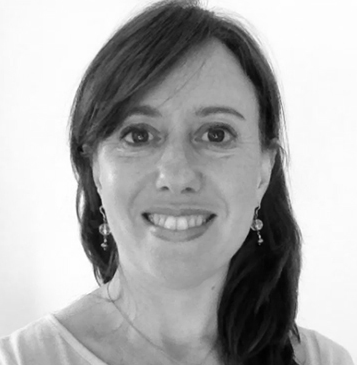 Sandra Lewis is the founder of Worldwide101, a premium virtual assistant company connecting demanding founders and executives with highly skilled, meticulously matched help. You can connect with her on LinkedIn.
Sandra Lewis is the founder of Worldwide101, a premium virtual assistant company connecting demanding founders and executives with highly skilled, meticulously matched help. You can connect with her on LinkedIn.
1.Could you please tell us about the “extreme growth” strategy that most startups are advised to follow?
The goal of so many entrepreneurs out there looking to start a small business is to follow this model: prove your concept, find product market fit, get funding and grow as quickly as possible.
And then it really starts, bombardment in both the media and from peers to find the best/easiest ways to quicken your growth. These “growth hacks” are made out to be the surest way to get your business on a successful trajectory. And if you’ve taken funding for your business, that pressure to grow is only compounded 10x over.
In the world of say, VC funded SaaS companies (cloud software companies that have taken funding from professional investment managers), that type of model makes sense. To reach market fit and then stick the investment-fueled gas pedal down as hard as possible for maximum growth is the norm, because what works for one customer, works for a thousand when you are selling the same platform. But, in a business where you are selling a service powered by real people, that model is used too often, and just simply doesn’t work.
We’ll use a company in a similar industry as an example. In 2011, Zirtual was THE name in online virtual assistance. The CEO of the company, Maren Kate Donavan, had done an incredible job of securing funding and gaining an enormous amount of exposure for the company which led to extreme growth. But Zirtual’s churn rates (the number of customers and employees it lost each month), and its focus on a low margin ‘one size fits all’ service were always going to bite them in the end – because in a dedicated virtual assistant business like Zirtual, it’s personal. You are selling a service powered by real people. It’s about listening to and understanding customers and their unique expectations. And to do it well, the level of your service offering, the quality and tenure of your people, and the relationship between your customers and employees is paramount if you want sustainable growth.
As much as founders and VCs would like it to be otherwise, a “people” business requires operational sophistication that doesn’t scale nearly as quickly and cleanly as a tech business. In Zirtual’s case, the pressure to grow quickly to meet demand, combined with its low margin inducing burn rates, was almost certainly detrimental to a business that needed more time to mature. In 2015, the business went under with no warning to its clients or its employees.
In a ‘people’ business, building trust takes extra time, and a personal touch. A model of extreme growth should be second to a model of service quality.
In that same vein, it was interesting to read Uber co-founder Garrett Camp’s recent Medium post, in which he spoke up about Uber’s recent troubles. Asked what went wrong, he said,
“In a highly competitive market it is easy to become obsessed with growth, instead of taking the time to ensure you’re on the right path…Now is the time to pause for a moment and think about what really matters here.”
Words that, thanks to some tough but valuable learning experiences — I’ve learned to live by.
2. In your business, you rejected the “extreme growth” strategy and took the opposite approach. What’s the strategy that you’ve followed? And why did you decide to follow that strategy instead of the traditional approach?
Since we founded Worldwide in 2012, we knew that the pressure for “extreme growth” would be counter to the type of company we wanted to create. We avoided taking any funding even though we have been approached by multiple investors – and have bootstrapped since day one. Instead of focusing on creating hype around our offering with no solid legs to stand on, we poured ourselves into building a strong foundation, knowing that if we offer a service that is better than the rest, focused on premium quality and unique personal relationships (as any people business should be) the growth would happen based on reputation and referral.
And it has. We’ve grown organically, steadily, and mostly by word of mouth since we began this journey. Now, we’re recognized, worldwide, as the gold standard in premium virtual business support. We have an amazing roster of incredibly successful clients, who trust us and tell their friends about us not because we are plastered all over the news, but because they’ve experienced long-term success with us – it’s proven to be more valuable than any paid marketing campaign we’ve run. Our numbers are strong, we’re profitable, and by all accounts, our team is happy.
I compare this focus on slow growth for a startup to that of a tree: A fast growing tree dies young. Because of the pace at which it grows, it never had time to build a solid trunk, leaving it weak to vulnerabilities, and certain to falter when a heavy wind blows its way. A slow growing tree lives on forever, taking the time to weave an incredibly solid foundation and core, before trying to reach its full potential. It’s strong enough to stand up to the natural obstacles that come its way. In a world of silver maples, our clients rely on the fact that we are an oak tree.
3. What results have you obtained for your business by rejecting the conventional wisdom on extreme growth?
If you’re really committed to not giving into the “extreme growth” model of doing business and instead focus on steady growth and reducing churn, then saying “no” to new business becomes a difficult daily reality. That is, you must turn down prospects who want you to deviate from your specialty, to make exceptions, or to bypass your established processes. In fact instead of extreme growth you have to employ extreme choosiness with both customers and employees.
Last year we had more than 20,000 job applicants and hired only 0.15% of them. Saying “no” has been especially difficult for us, as we take pride in offering a personalized experience for everyone who gets in touch. But it has slashed our churn rate, and led us on a healthy upward trajectory of growth by on average of 60% per year since we began.
We plan to stay boutique and brilliant.



